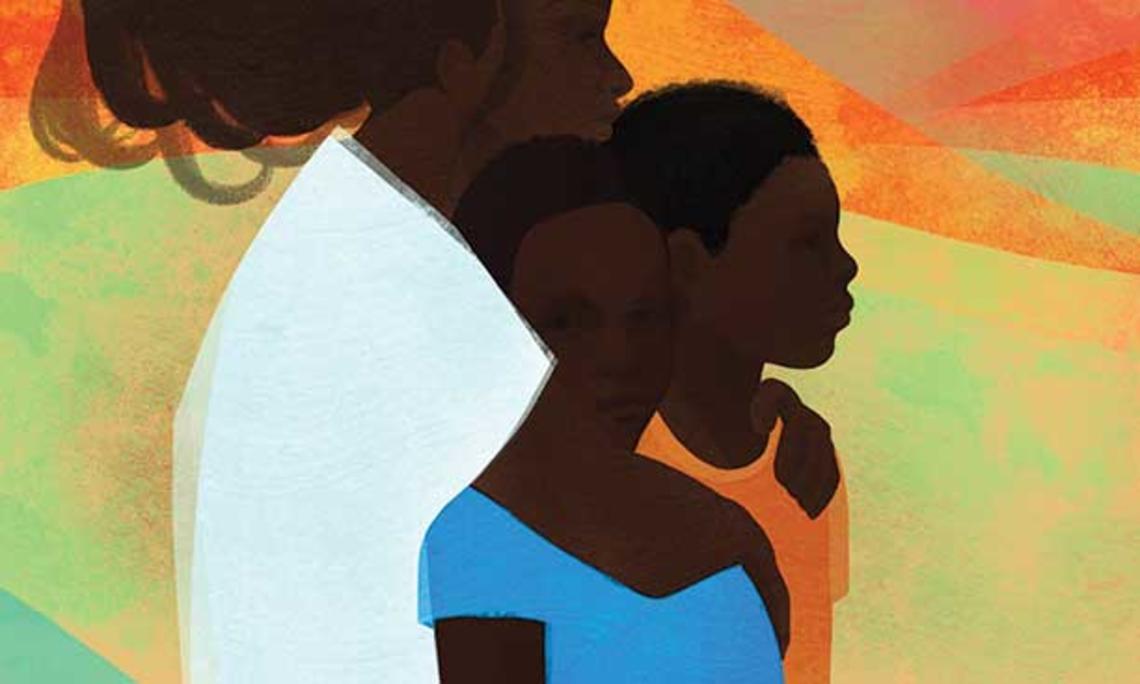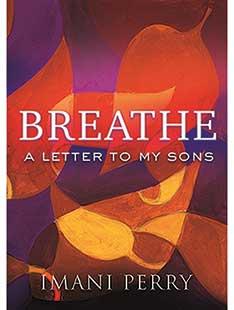

In the Catholic tradition, there is a form of grace—the sanctifying one—that is the stuff of your soul. It is not defined by moments of mercy or opportunity. It is not good things happening to you. Rather it is the good thing that is in you, regardless of what happens. You carry this down through generations, same as the epigenetic trauma of a violent slave master’s society. But the grace is the bigger part. It is what made the ancestors hold on so that we could become.
And I have tried to make things just so in appreciation to them and for us.
Freeman Diallo. When I gave birth to you, I had labored for twenty-four hours. The first words ever said about you came from your father. “He’s beautiful.” They cut you out of me, a thin, wavering bloody line, and then my flesh stretched wide for you, and you were born brown mixed with red like the clay of the Black Belt. I had barely dilated, only a centimeter. Like I couldn’t bear to let you go. And the obstetrician said that in another time in history I wouldn’t have made it. Too small, too tight. Thank God you came into this world when you did. Thank God for the scalpel that broke you into this time.
My second delivery was quick. I had a planned C-section; I entered the surgical theater foggy and fifteen minutes later, Issa, you were in my arms. I saw no blood, no gore, and felt no pain until the next day when all of the medication wore off, and even then, the euphoria and endorphins of your freshness made the incision barely more painful than a bad scrape. You kept your eyes closed and your face was pink (pink!) and surrounded by little black curls. Your brother played on the cool tile hospital floor with a cardboard farm that housed tiny plastic animals. His cheeks were russet, chapped, and he was cheery for the sweet baby who, having claimed he was giving birth along with me, he called “Georgie Pickles.” You were serene. The nurse said:
“I remember you. You were the one who tried to leave an hour after you had the baby last time.” And laughed.
It’s true. I had my baby and I was done with them, the institutionalized tile floors, the constant temperature taking, the rolling steel bassinet they put by my bedside—I just wanted you in my arms. I got my friend to sneak me a chicken biscuit to get my strength up and then starting scheming on my escape from the coldness of the ward.
The first time I tried, I had a bit of trouble nursing. The lactation consultant said that I would get the hang of it. I didn’t. It was painful, and Freeman you screamed and balled up those little fists and I wept. It was too soon, and too much, to fail. One of the maternity ward nurses saw me. She quietly closed the door and whispered to me, “Do you want to give him a little formula?” I answered, conspiratorially, “Yes do you think I can?” Mmhm, she said. Just don’t tell them. I remember the nurse’s hair, kinky twists with a spiral curl at the bottom, and that tiny little bottle of cream-colored liquid. And so soon, you got something in your belly, and I got some lanolin cream. And by the next day, after that one little bottle, you were nursing just fine. I was learning to be a little bit easy. At least with some things.
On the third day of the second time, we went home. There were then two car seats, a lime green room, trimmed in white, pretty sheets, a fluffy bumper for when you rolled around, a fine ebony crib, and a matching daybed. Together, you were outfitted in the modern Western style. Just so. I didn’t sew your curtains, but I matched them to the walls and the cartoon decals and the comforter and the alphabet rug I bought so that you would know letters as soon as your vision was clear.
And when you came home from the hospital I was filled with nostalgia. Each time, I attempted an approximation of my sweetest childhood memories. Memory is a time machine. You don’t just recall; you conjure in it.
When your father and I bought the house, we checked for lead paint, anticipating babies. I remembered the signs from my childhood featuring a Black child, chalky Black with a white cast around his mouth, telling us do not eat paint chips no matter how sweet they tasted. Paint was a predatory desire. You came home to safety.
When you were little, I dressed you in crisp plaid shorts and matching red hoodies. Boat shoes sometimes, saddle oxfords others. For formal occasions there were smocked dress clothes and Eton suits. You looked so fresh, so lush, golden and bronze plump bodies inside crisp preppy packages. People stopped us to see the pretty babies.
You lived on a block that was shaded with a canopy of trees. It was exactly the memory I wanted to have never disappeared, for you. The older you get, however, the more things break, no matter how just so a parent wants to make it.

No matter how “just so” I have tried, and often failed, to make things, I have known from the very first day of each of your lives that I cannot guarantee your safety. That is the thing that the voyeurs want to drink in. That is why they make me so mad, really. Because the truth is it is frightening. But the fear is not the heart of the thing. The fear is what comes because your preciousness collides with the ways of the world. And then there is the battle against it, that all of us are forced to wage, because as Wole Soyinka said, “Let us simply observe that the assault on human dignity is one of the prime goals of the visitation of fear, a prelude to the domination of the mind and the triumph of power.” So, like many others, I try to unravel the fear. And confront the rest.
The everyday. The homework, the cooking, the cleaning, the activities, the practices, the friends, the rearing, it is so much—even, or perhaps because of, the choices and things I have been afforded. And then, on top of that, the daily work of beating back the ugliness. And reconciliation with the irreconcilable. You live in some worlds that are more white than Black. And so, you learn, early on, that the aversion to Blackness can turn perfectly lovely people grotesque. Like in high school, for me. There was a brilliant teacher. He wore a military precision haircut in gray, and had piercing blue eyes, and a great deal of flourish. He yelled at me my first day, because I had forgotten to bring a pencil. He mocked my answers in class. He called me the names of other Black students. He openly disparaged the inclusion of Black authors in the curriculum after we, students, had insisted. He lied on my evaluations and said I hadn’t turned in papers. He was beloved by my peers. He was a brilliant teacher, for whites only. The bifurcation of my experience, and that of my peers, in which they witnessed my humiliation, felt uncomfortable for them. They were disciplined into passive acceptance, into reaping the rewards, while I was humiliated over and over again. Ask a white person about these moments and often the veil falls. Their moral turpitude lies naked and ashamed. Bewildered at the idea that they might have something asked of them to disrupt the hideous truth. This is what you are surrounded by. Silent witnesses.
Liberals, the “good guys,” of all stripes gnash their teeth at such truths, and smiles turn to bitter curls, which makes them ever more dangerous. This problem dwarfs partisanship and smug decency. It is constitutional.
Excerpted from Breathe: A Letter to My Sons by Imani Perry. Copyright 2019. Excerpted with permission by Beacon Press.










0 Responses